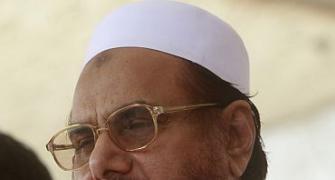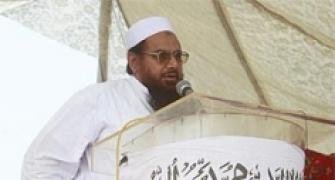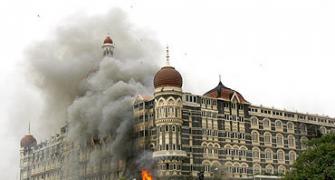Justice Umar Ata Bandial of the Lahore high court asked the foreign ministry to furnish a "fresh and comprehensive" reply to the court to clear the government's position on the matter. He issued the order for a second response by the ministry after Saeed's counsel A K Dogar contended there were "certain flaws" in the government's first reply submitted on May 30. The judge then adjourned the case till September 20.
The federal government had informed the high court in a reply submitted by Deputy Attorney General Naseem Kashmiri on May 30 that it could not defend Saeed, a prime accused in the Mumbai attacks, in the US lawsuit.
The government's reply said it is defending Inter-Services Intelligence officials in the US court as the spy agency is an institute of the government while the "JuD or its chief is not the part of the government".
"Therefore, the government cannot provide legal assistance to him or his organisation," the reply stated.
Justice Bandial sought the fresh response from the foreign ministry after hearing arguments by Saeed's counsel Dogar during today's proceedings. Dogar claimed the federal government was unwilling to defend Saeed but the court would decide the matter. Saeed claimed in his petition that he heads the JuD, a "charitable organisation", and has no link with the Lashkar-e-Tayiba.
Saeed was served with summons from the US District Court in Brooklyn in December last year in connection with the case filed by relatives of two Jewish victims of the 2008 Mumbai attacks, which were carried out by the Pakistan-based LeT.
The current and former chiefs of the ISI were also named in the lawsuit and the Pakistan government has announced it will defend them.
The ISI's alleged role in the Mumbai attacks has come in for fresh scrutiny following damaging revelations recently made by Pakistani-American LeT operative David Headley at the trial in Chicago of co-accused Tahawwur Rana.







